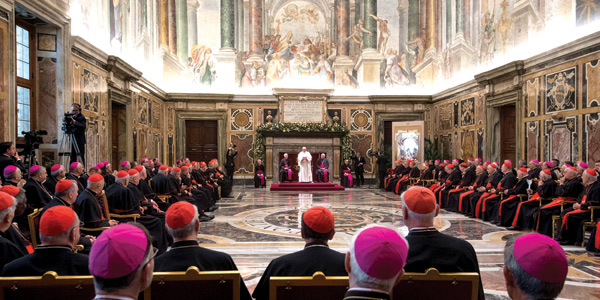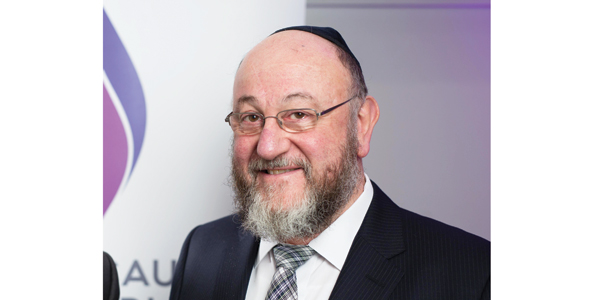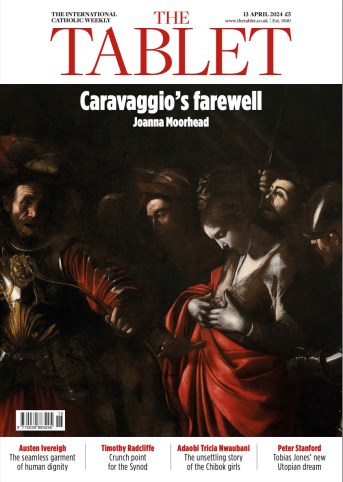On Yom Kippur, the Day of Atonement, the holiest day of the Jewish year, the liturgy for the faithful repeats the prayers of the High Priest in the Holy Temple. It is a day of heartfelt devotion, when one of the entreaties is a request to God to ignore the prayers of travellers. Why make such a plea to the Almighty? Because, as Ephraim Mirvis, the Chief Rabbi, expounds, tourists always pray for good weather. Or to put it another way, they put their own interests before those of the wider society.
“For us, it’s a symbol of the fact that we, as individuals, exist for the sake of one and all, and we should not just concentrate on our own personal desires. This is reflected in all our prayers in the Jewish tradition. Travellers want good weather and often they are blinded to the needs of all of our society … Yet we live in a dual manner, in a two-dimensional way. I am myself, I am accountable to God as a person and I am also part of society.”
It was that tension between individual and collective responsibility, that “schism” between the particular and the universal, which concerned the Chief Rabbi when we met last month. Two days earlier, he had appeared with the Archbishop of Westminster, Cardinal Vincent Nichols, before a House of Lords Select Committee on Citizenship and Civic Engagement. In a fluent and commanding performance, he cautioned against those who would promote only “certain values without any interest in universalism” as well as those those who fail to respect the right of the individual to “their own particular identity.”
This challenge is not just for all of us but for the political classes too, Mirvis tells me. Political leaders need to calibrate the right messages and their tone in what he terms this “newly divided society”. This fault line, which has ruptured traditional political divisions between left and right, conservative and liberal, divides people into “drawbridge up” entities, which delimit a “them and us” mindset, and “drawbridge down” communities, which celebrate a common humanity. It is these rival approaches towards immigration, global trade, even culture, and how they may play out in future elections, that trouble him.
If there are new fissures opening up, the old hatreds have not gone away either. A growing concern is the record increase in the number of anti-Semitic incidents in Britain in the first half of 2017. The Jewish charity, the Community Security Trust (CST), recorded 767 cases – up 30 per cent on the previous year. The rise in anti-Semitism “is a real issue,” says the Chief Rabbi. “It needs to be treated seriously. To our advantage, anti-Semitism in the UK is not seen exclusively as a problem for the Jews; it is correctly seen as a problem for our society. The fight against it is not being led by the Jewish community, it is being led by the government and from the government down.”
Mirvis has been highly critical of the Labour leader, Jeremy Corbyn, following a number of damaging rows about anti-Semitism in the Labour Party over the past two years. In a very public intervention last May, he said that Labour had a “severe” problem with anti-Semitism and called on Mr Corbyn and his allies to take “decisive action” to tackle the problem and to avoid “political posturing” or “empty promises of action.”
Pressed on whether he feels Labour has addressed the issue, after members voted for new rules to tackle anti-Semitism at their party conference in September, the Chief Rabbi is circumspect. “There have been some positive moves and we now are hoping that there will be implementation of disciplinary measures which have been decided upon. It is the action that is most important with regard to dealing with anti-Semitism.” As for Mr Corbyn’s stance? “I think it is important for all political leaders to give responsible leadership at this time.”
As the eleventh Chief Rabbi of the United Hebrew Congregations of the Commonwealth, Mirvis has been forging his own distinctive leadership of Orthodox Jewry since his installation in September 2013. A former Chief Rabbi of Ireland, he joined the UK Rabbinate in 1992, enhancing his reputation as a powerful pastoral figure while leading the Finchley United Synagogue in north London. In Finchley, he was known as “Super Rabbi”. Members of his synagogue joked that under his impeccable white shirt there was a large letter “R” for rabbi, or “S” for super, or even Spurs, his favourite football team, The Jewish Chronicle reported.
He succeeded the theologian and philosopher Lord (Jonathan) Sacks, to whom he paid a warm tribute at his installation, noting that his predecessor had “become a leading spokesman for Judaism in our generation” through his writing and broadcasting.
Ephraim Mirvis was born in 1956, grew up in South Africa and was ordained in Israel. His role today, he believes, is to act as a “catalyst” for deepening the commitment to Jewish identity, values and education. “He exudes the confidence to be his own man in a very effective way in terms of relationships,” said someone who has worked closely with him in the past. “When you are with him, he is someone who really focuses on you.”
Soon after his appointment, he set out a strong statement of his intent to reach out by attending the cross-communal Limmud Festival, a major celebration of Jewish learning and culture – described by one writer as a “pluralistic smorgasbord of Jewish teachings”. This was a significant break with his predecessor, and some within his own Orthodox community were unhappy with the precedent.
In person, Mirvis is welcoming and at ease, while deftly pirouetting away from those subjects on which he feels he has made his point. However disheartening the bad-tempered churn of public and political discourse may be, he argues that from a Jewish perspective, it is “an exciting time” and one where the centrality of hope enables “a genuine belief in a positive way forward.”
“It is wonderful when one is rooted in a faith tradition where one has not just something to live with but something to live for, and when one sees that so many aspects of our faith, which has sustained us for millennia, are perhaps even more relevant in contemporary times than ever before.”
As an example, he recalls the latest ShabbatUK event celebrating the Jewish Sabbath and promoting a stronger sense of identity and belonging. Now in its fourth year, he says the extent to which British Jews have embraced this inititiative has been extraordinary. His support for a digital detox day, when people would leave aside their phones and other items of technology, has reached an even bigger audience.
It is that enduring sense of family and community, of pastoral endeavour, that percolates through the Chief Rabbi’s words and actions. In this respect, his style mirrors that of Pope Francis. The two men met for a private audience in the Vatican in 2015 ahead of the 50th anniversary of Nostra Aetate, the landmark Vatican II document that condemned all forms of anti-Semitism and transformed dialogue between the Church and other religions, Judaism in particular.
Mirvis was accompanied by his friend Cardinal Nichols, but it was a gift from his wife, Valerie, that animated the encounter. She presented Francis with a batch of home-made florentine biscuits, her favourite recipe. As the Chief Rabbi recalled: “His eyes lit up and he wanted to know where they should be kept, in the fridge or the freezer, and how to eat them and so on … When you are able to talk about food, eat together, have a chat, when you have a genuine warm relationship, then you can focus on some serious issues in a constructive and deliverable way.”
The official photographs of that Vatican meeting, widely distributed on social media, have “spoken volumes in the Jewish community and in the Christian community as being a symbol of togetherness, of unity, particularly when one bears in mind quite a sad history between the two faiths,” he says.
“Sometimes the photo opportunity is the substance.” Half a century after Nostra Aetate, the Chief Rabbi believes it is important to remember how far Jewish-Catholic relations have progressed and the “significant steps that have been taken.” In Britain, he says the relationships with Cardinal Nichols and with the Archbishop of Canterbury, Justin Welby, are “outstanding”.
Mirvis has also fostered contacts with Muslim leaders in Britain, but says that there are difficulties around communications. It is also the case that the “warm relationships” which often exist between leaders do not always filter down. “There is a huge challenge there, and we need to work far harder on that,” he says. A second need “is to have role models, to have messaging, to have faith leaders who say this is what we would love you to be doing; and we need more of that, greater encouragement from all faith leaders in this country”.
However strong the relationships with other religious leaders, there are real differences too, such as the reaction to President Donald Trump’s announcement last month that the US will now recognise Jerusalem as Israel’s capital. The Pope called for the city’s “status quo” to be be respected and he used his Christmas Day message to repeat his support for a negotiated two-state solution to end the Israel-Palestinian conflict.
But for the Chief Rabbi, Jerusalem “has always been the capital of Jewish consciousness, the capital of Judaism … but for me, foremost in my mind is that earnest desire for peace and I pray for peace within these uncertain times.” That is his deepest sentiment, he says, as he recites the verse from Psalm 122: “Pray for the peace of Jerusalem.”
So what would he say to those moderate Palestinian leaders and Christians who oppose the Trump plan? “You know there’s a lot of speculation and a lot of statements. Let’s see how things turn out.” He argues that the priority is for leaders to engage peacefully, so that people in the region can live without the threat of war.
Our conversation turned to his own style of leadership. Last July, Mirvis issued an urgent call for unity in Orthodox Jewry, following a bitter row over a senior rabbi’s views on homosexuality. “Jewish unity is not a pleasant additional extra, it is fundamental to our survival,” he wrote in The Jewish Chronicle. “There are so many external threats to the Jewish world that if we cannot even treat each other with the most basic common courtesy, our very survival is at stake.”
There is, of course, a difficult balance to strike for any leader, but it is faith that sustains and inspires Mirvis. At times like this, he takes inspiration from the teachings of the leading nineteenth-century figure, Rabbi Yisrael Salanter, who advocated a life rooted in ethical values. No one aspires to a position where people do not like you, the Chief Rabbi reflects, but if you are going to be a true leader, you need to stand up and say what is right.
He quotes a teaching from Rabbi Salanter: “If I am a rabbi and everyone loves me, then I am not a rabbi. And if I am a rabbi and no one loves me, then I am not a mensch – not a decent human being.”




 Loading ...
Loading ...
What do you think?
You can post as a subscriber user...
User Comments (0)